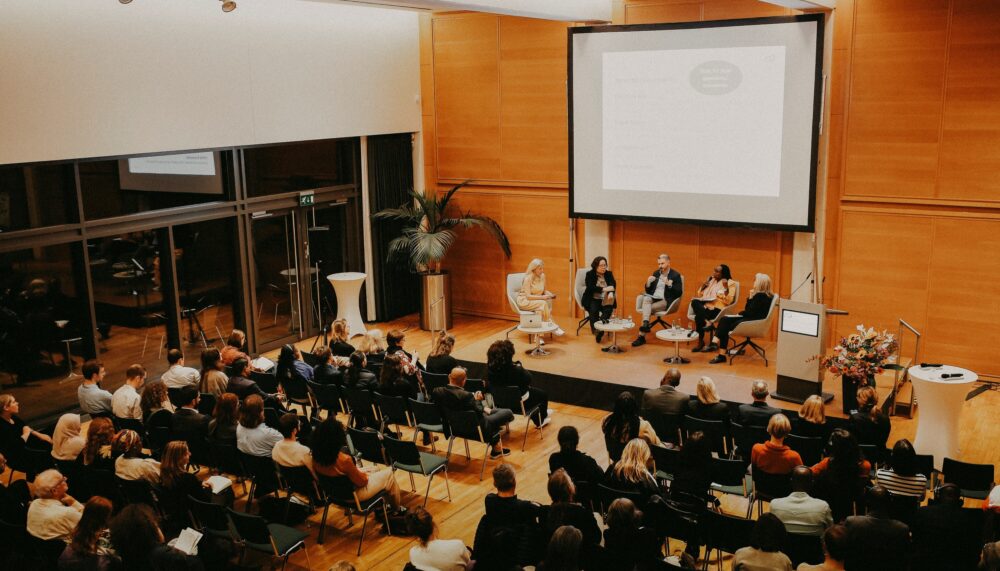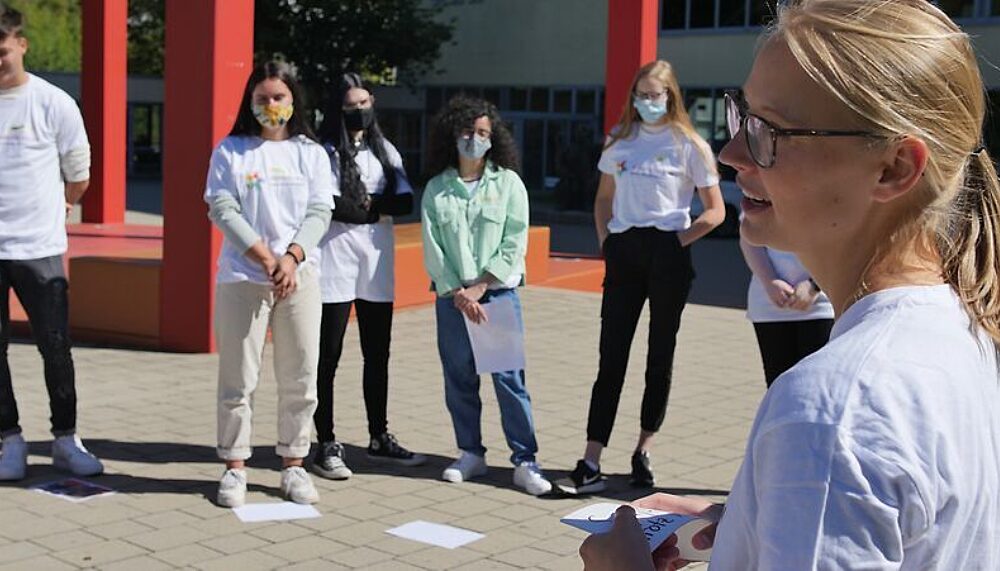FEATURE | 13 Nov 2025
From transition to transformation
Rethinking transitional justice in challenging circumstances

Our Global Learning Hub for Transitional Justice and Reconciliation brought policymakers and practitioners together in Berlin to discuss how strategies must evolve.
Transitional justice brings hope to local communities in today’s turbulent global environment, but it must evolve to remain effective. This was the central message of an event that concluded a two-day practitioners’ conference organised by the Global Learning Hub for Transitional Justice and Reconciliation.
Even as civil spaces shrink, authoritarianism rises, and funding becomes scarcer, we see that transitional justice continues to provide essential pathways for transforming violent pasts into more peaceful and just futures. But to have a lasting effect, transitional justice approaches must be context-specific and locally owned, while being built on coalitions and strong alliances to sustain momentum.
The conference brought together 80 practitioners from more than 40 countries to exchange practical experiences, identify common challenges, and formulate recommendations on transformative transitional justice. The evening event on the final day provided an excellent opportunity to share conference insights with national and international policymakers, as well as an engaged audience.
Transitional justice is not only about dealing with the past but also about dealing with the future.
Our Executive Director, Chris Coulter, reminded participants that transitional justice is not only about dealing with the past but also about “dealing with the future” and as such relevant for conflict transformation and peace. Referring to today’s uncertain global environment, State Secretary Niels Annen from the German Federal Ministry for Economic Cooperation and Development stressed that “transitional justice is more important than ever”. He emphasised that local approaches, grounded in the aspirations and voices of victims, are key to successful transitional justice and that there must be a shared responsibility of both civil society and governments, which requires trust and close collaboration.
In his keynote address, Barney Afako, member of the UN Commission on Human Rights in South Sudan, highlighted that at a time when the consensus around human rights and rules-based international order is eroding, it is crucial to strengthen linkages between transitional justice and other fields such as the Sustainable Development Goals and post-conflict reconstruction. He also called for the inclusion of non-traditional partners, including the private sector, in processes of dealing with the past.
In the following panel discussion, Christine Alai (Utu Wetu Trust), Sheila Grace Formento (Alternative Law Groups), Habib Nassar (Independent Institution of Missing Persons in Syria), and Azadeh Khalili (Humanity in Action) shared insights into current challenges to transformative transitional justice and strategies to overcome them.
Read more and find out which recommendations the four practitioners shared with the audience on the Global Learning Hub for Transitional Justice and Reconciliation website.
Media contact
You can reach the press team at:
+49 (0) 177 7052758
email hidden; JavaScript is required


